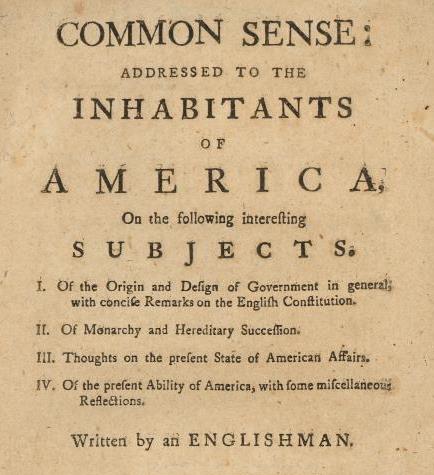
http://americainclass.org/thomas-paine-common-sense-1776/
The rights and freedoms guaranteed by the United States Constitution are not enjoyed on a conditional basis. Surely no one is about to argue that a person who does not exercise their 1st Amendment right to freely practice the religion of their conscience, loses that right after a certain period of inactivity. Surely no one is about to argue that a person who does not exercise their 4th Amendment right to be free from unreasonable searches and seizures, loses that right after a given period of time. And yet, the State of Ohio is prepared to make an argument to the Supreme Court that, in essence, a failure to actively participate in our democracy through the use of voting is cause to lose that very right. It is demanding to conjure an idea more antithetical to the underpinnings of our democracy.
The case, Husted v. A. Phillip Randolph Institute, et al., is a challenge to the State of Ohio’s process for removing individuals from the State’s voting rolls. If a person fails to vote in a two year time period, they will be mailed a notice by the state. The individual must respond to the notice and indicate they have not moved and are still eligible to vote. If the individual does not respond to the notice and does not vote in a four year time period, they may be removed from the state’s voting rolls, rendering the individual ineligible to vote unless they re-register.
Ultimately, the Supreme Court needs to determine whether or not the State of Ohio’s process for removing individuals from the state’s voting rolls violates the National Voting Registration Act (NVRA), which prohibits states from removing anyone from voting rolls (thus making them ineligible to vote) for failure to exercise their right to vote. The case’s outcome comes down to causality: clearly a failure to vote causes the notice to be mailed by the state and clearly a failure to respond to the notice and vote in the next four years causes an individual to be removed from the state’s voting rolls.
But does there exist a causal chain linking the failure to vote and an individual to be removed?
The intent of the NVRA was to establish procedures that would increase the number of eligible citizens who were registered to vote while simultaneously protecting the integrity of the voting process and ensure that accurate and updated voter registration rolls would be maintained. As should be obvious, both from Congress’s stated intent and from the Ohio case described above, the desired outcomes of the NVRA can easily come into conflict. This should make perfect sense; humans are imperfect creatures and, thus, so too are any human inventions or innovations, including the law. The rights and freedoms guaranteed to Americans are not a natural part of the world- they do not exist but for the specific actions this country’s forefathers and past leaders took in pursuit of that freedom.
History teaches us that security is the norm; freedom the rarity. For millennia, true freedom was a radical idea and nothing more. Yet today, in large part due to the actions and ideology of the Founding Fathers, it is regarded as a logical and rational expectation in American society. On January 10, 1776, Thomas Paine published Common Sense, a pamphlet which laid out the case for independence from Britain. Today we regard his actions, and the rest of the Founding Fathers’ decisions, to be the penultimate acts of patriotism, on behalf of freedom. Yet it is important to recognize that at the time, those actions only represented a move towards greater freedom, not an act of patriotism. Instead, the Founding Fathers were committing treason.
Additional reading on the Ohio Voting Rolls Case:
win – lotteries, fast loto
LikeLike